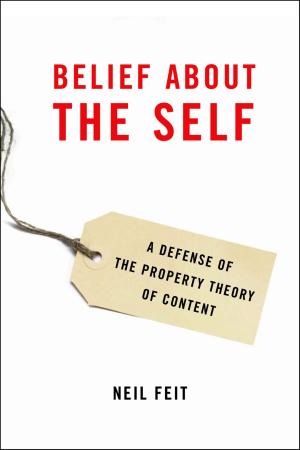Surfing Uncertainty
Prediction, Action, and the Embodied Mind
Nonfiction, Health & Well Being, Medical, Specialties, Internal Medicine, Neuroscience, Religion & Spirituality, Philosophy, Mind & Body| Author: | Andy Clark | ISBN: | 9780190217037 |
| Publisher: | Oxford University Press | Publication: | October 2, 2015 |
| Imprint: | Oxford University Press | Language: | English |
| Author: | Andy Clark |
| ISBN: | 9780190217037 |
| Publisher: | Oxford University Press |
| Publication: | October 2, 2015 |
| Imprint: | Oxford University Press |
| Language: | English |
How is it that thoroughly physical material beings such as ourselves can think, dream, feel, create and understand ideas, theories and concepts? How does mere matter give rise to all these non-material mental states, including consciousness itself? An answer to this central question of our existence is emerging at the busy intersection of neuroscience, psychology, artificial intelligence, and robotics. In this groundbreaking work, philosopher and cognitive scientist Andy Clark explores exciting new theories from these fields that reveal minds like ours to be prediction machines - devices that have evolved to anticipate the incoming streams of sensory stimulation before they arrive. These predictions then initiate actions that structure our worlds and alter the very things we need to engage and predict. Clark takes us on a journey in discovering the circular causal flows and the self-structuring of the environment that define "the predictive brain." What emerges is a bold, new, cutting-edge vision that reveals the brain as our driving force in the daily surf through the waves of sensory stimulation.
How is it that thoroughly physical material beings such as ourselves can think, dream, feel, create and understand ideas, theories and concepts? How does mere matter give rise to all these non-material mental states, including consciousness itself? An answer to this central question of our existence is emerging at the busy intersection of neuroscience, psychology, artificial intelligence, and robotics. In this groundbreaking work, philosopher and cognitive scientist Andy Clark explores exciting new theories from these fields that reveal minds like ours to be prediction machines - devices that have evolved to anticipate the incoming streams of sensory stimulation before they arrive. These predictions then initiate actions that structure our worlds and alter the very things we need to engage and predict. Clark takes us on a journey in discovering the circular causal flows and the self-structuring of the environment that define "the predictive brain." What emerges is a bold, new, cutting-edge vision that reveals the brain as our driving force in the daily surf through the waves of sensory stimulation.















